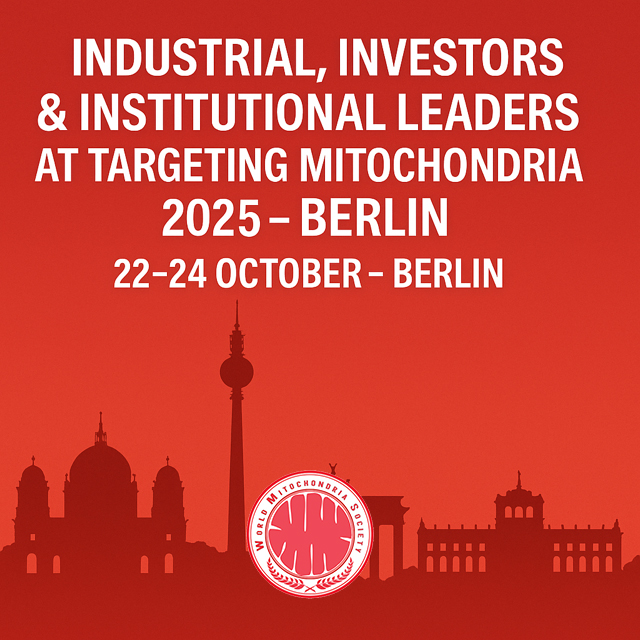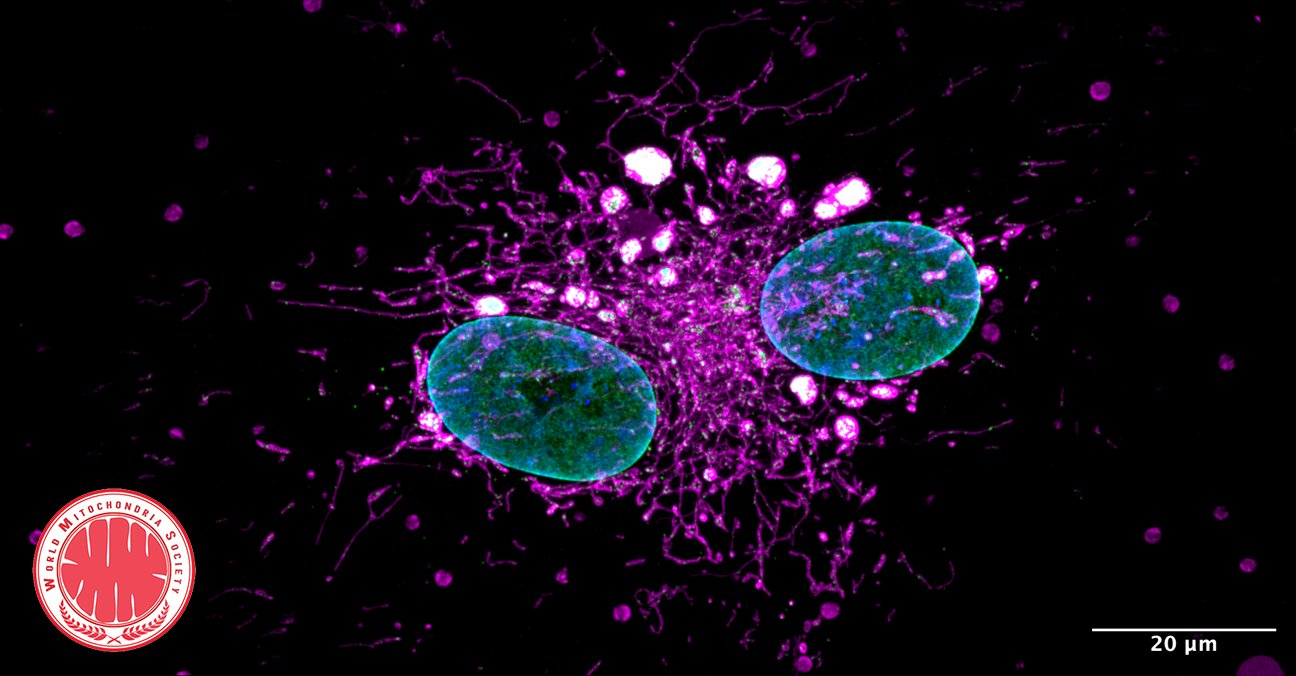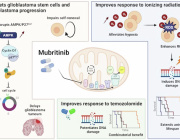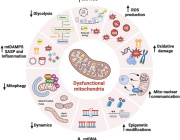Antioxidants cause malignant melanoma to metastasize faster: Pr Martin Bergö was awarded by WMS Committee
 Pr Martin Bergö, from Sahlgrenska Cancer Center in Sweden gave a strategic talk about the impact of antioxidants supplementation on malignant melanoma progression during Targeting Mitochondria World Congress 2015 which was awarded by the scientific committee of the World Mitochondria Society.
Pr Martin Bergö, from Sahlgrenska Cancer Center in Sweden gave a strategic talk about the impact of antioxidants supplementation on malignant melanoma progression during Targeting Mitochondria World Congress 2015 which was awarded by the scientific committee of the World Mitochondria Society.
Pr Bergo's team has found that antioxidants can double the rate of melanoma metastasis in mice. The results reinforce previous findings that antioxidants hasten the progression of lung cancer. According to Professor Martin Bergö, people with cancer or an elevated risk of developing the disease should avoid nutritional supplements that contain antioxidants.

According Pr Bergo: "Cancer is a genetic disorder driven by oncogenic mutations, and DNA damage caused by reactive oxygen species (ROS) is part of the underlying mechanism. Since ROS levels are kept in check by antioxidants, a widely accepted dogma is that dietary supplements containing high concentrations of antioxidants protect against cancer. However, clinical trials have not supported this view, and some even showed that antioxidants increase cancer risk".
For more information about Targeting Mitochondria World Congress: www.targeting-mitochondria.com
For more information about Pr Bergo's study, please follow this link.
The Awards for Short Oral & Poster Presentations were discerned during Targeting Mitochondria World Congress
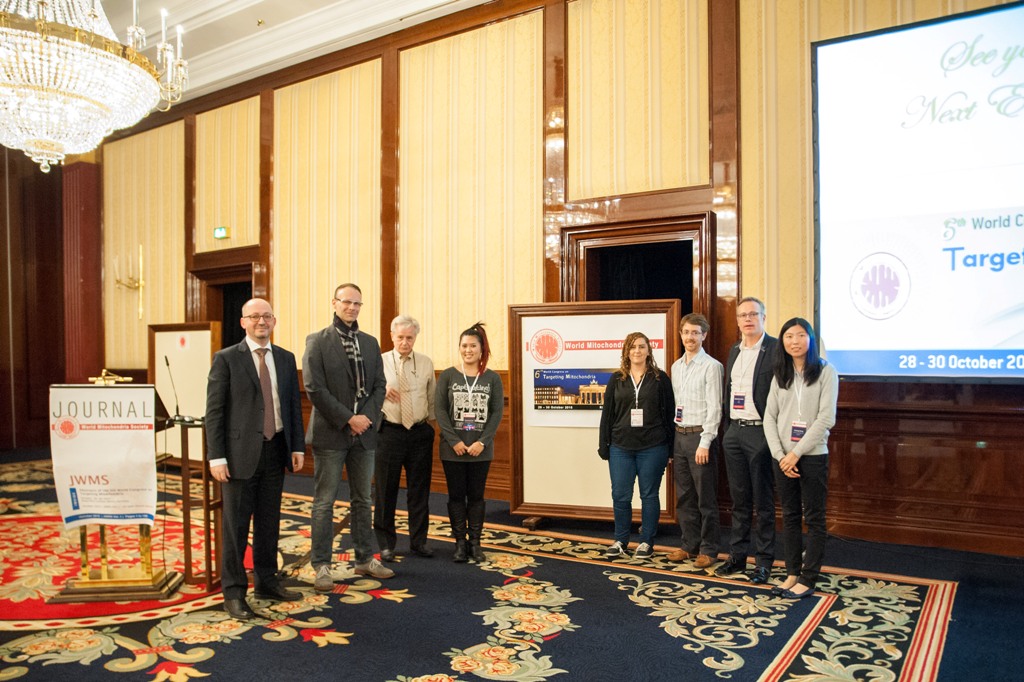
On behalf of the Scientific Committee, we congratulate all scientists for their short oral & poster presentations during Targeting Mitochondria 3-days congress.
The Scientific Committee discerned different awards:
The Scientific Contribution Award was discerned to Pr Martin Bergö from Sahlgrenska Cancer Center, Sweden for his researches about antioxidants in cancer.
More information by clicking here.
3 Awards for short oral presentation were discerned to:
- Dr Yuning Hong from University of Melbourne, Australia, for his presentation about Novel Fluorescent Probes for Visualizing Cell Structures and Function
- Dr Martin Picard from Columbia University, USA for his presentation about Inter-organelle communication via specialized mitochondrial synapse
- Dr Sébastien Bolze from Poxel, France for his strategic presentation about Imeglimin, a new mitochondria-targeted agent for type 2 diabetes treatment
2 awards were discerned for the best Poster Presentations:
- Mrs Ifat Cohen-Erez, from Ben Gurion University, Israel for her poster about Co-assemblies of the Anionic Polypeptide γ-PGA and Cationic β-sheet Peptides for Drug Delivery to Mitochondria
- Dr Genevieve Syn from Telethon Kids Institute, USA, for her poster presentation about Toxoplasma Gondii infection results in disruption of the host mitochondria.
If you would like to access to these abstracts and all the abstracts presented during the congress, you can order by abstracts book by clicking here.
For more information about Targeting Mitochondria World Congress: www.targeting-mitochondria.com
The 6th edition of WMS Targeting Mitochondria was a huge success
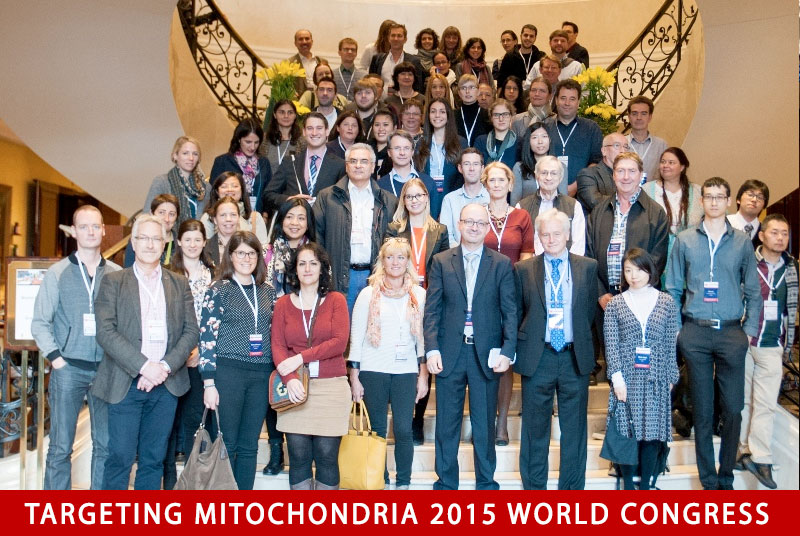
The 6th WMS World Congress on Targeting Mitochondria was held on October 28-30, 2015 at Hotel Ritz Carlton, Berlin. This sixth edition was a huge success gathering more than 430 attendees, coming from different flieds: academics, clinicians, industrials... and from 37 countries.
Marvin Edeas highlights the impact of glycation in health and medicine
 Dr Marvin Edeas, from Cochin Institute-INSERM U1016, CNRS UMR8104, Department of Cancer, Development and Reproduction / Inflammation, Oxidative stress and Cellular Proliferation Team, University Paris Descartes, wish to share with you many strategic questions about the important impact of glycation in health and diseases.
Dr Marvin Edeas, from Cochin Institute-INSERM U1016, CNRS UMR8104, Department of Cancer, Development and Reproduction / Inflammation, Oxidative stress and Cellular Proliferation Team, University Paris Descartes, wish to share with you many strategic questions about the important impact of glycation in health and diseases.
The field of interest of Dr Marvin Edeas is to study the relationship between mitochondria and microbiota (Pathog. Dis, 2016)
According to Dr Edeas: Actually, we investigate in clinical study many factors who can affect this intriguing relationship and may alter the Mitochondria-Microbiota Homeostasis such as oxidative stress, redox modulators and inflammation. We look to reinforce and protect mitochondria to provide the adequate energy and respect also the quality and diversity of gut microbiota.
The advanced glycation end products is one strategic target in our study. We try to clarify How they affect mitochondria and microbiota homeostasis ? There effects on oxidative stress, Redox status, genes expressions, inflammation, metabolism, ATP production and how they shape the gut and skin microbiota ?
During the 2 days of glycation 2016, we will highlight the following points:
- Can AGE inhibitors will be a potential strategy for the prevention of lifestyle-related diseases such as diabetic complications ?
- Can AGE inhibitors be used as a pharmaceutical drugs or dietary supplements?
- What is the importance and level of contribution of food-derived advanced glycation end products to the body pool of AGEs ?
- Can they increase oxidative stress, modulate redox signaling pathway, affect genes expression ?
- What is the impact on Mitochondria and cellular metabolism ?
- What is the impact on our gut microbiota ? Can AGEs affect the diversity and quality of our microbiota ?
- The inhibition of advanced glycation end-products by daily meals is myth or reality?
What is next ?
You can share with us your opinion, though and questions which I can diffuse to the scientific committee.
Marvin Edeas, Chairman of Glycation 2016 Conference
Microbiota-mitochondria inter-talk: consequence for microbiota-host interaction.
An excellent book to read by Marvin Edeas and Volkmar Weissig: three-volumes Mitochondrial Medicine
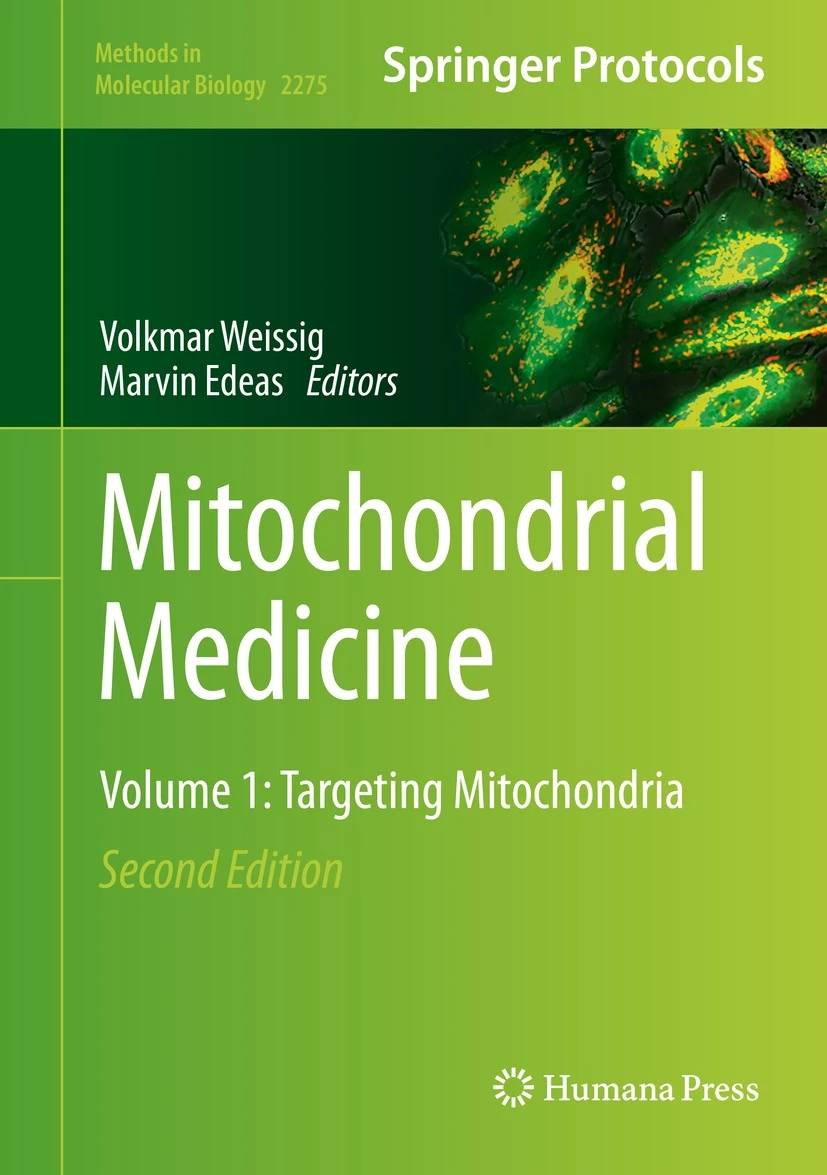 Springer published in 2015 two books edited by Volkmar Weissig and Marvin Edeas, as chairmen of the World Mitochondria Society:
Springer published in 2015 two books edited by Volkmar Weissig and Marvin Edeas, as chairmen of the World Mitochondria Society:
- Mitochondrial Medicine: Volume 1 - Targeting Mitochondria
- Mitochondrial Medicine: Volume 2 - Assessing Mitochondria
- Mitochondrial Medicine: Volume 3 - Manipulating Mitochondria and Disease - Specific Approaches
The first volume of Mitochondrial Medicine covers an interdisciplinary and rapidly growing area of biomedical research comprising genetic, biochemical, pathological, and clinical studies aimed at the diagnosis and therapy of human diseases which are either caused by or associated with mitochondrial dysfunction. It dedicates itself to showcasing the tremendous efforts and the progress that has been made over the last decades in developing techniques and protocols for probing, imaging, and manipulating mitochondrial functions.
Mitochondrial Medicine: Volume I - Targeting Mitochondria focuses on methods being used for the assessment of mitochondrial function under physiological conditions as well as in healthy isolated mitochondria. Written in the highly successful Methods in Molecular Biology series format, chapters include introductions to their respective topics, lists of the necessary materials and reagents, step-by-step, readily reproducible laboratory protocols, and tips on troubleshooting and avoiding known pitfalls. Comprehensive and practical, Mitochondrial Medicine provides an essential source of know-how and inspiration to all researchers who are fascinated by this tiny organelle that seems so clearly to control the life and death of a single cell and whole organisms alike.
Volkmar Weissg and Marvin Edeas highlighted in these three volumes the strategic role of mitochondria in health and disease, but they also opened a new window to how to evaluate and to manipulate mitochondrial function.
38 chapters were published by Springer in this first volume.
For more information about Volume 1, please click here.
For more information about Volume 2, please click here.
For more information about Volume 3, please click here.
Volkmar Weissig and Marvin Edeas will update and renew an edition and discuss the contributors and targets during the 16th World Congress on Targeting Mitochondria that will be held in Berlin on October 22-24, 2025.
For more information about the annual Targeting Mitochondria meeting: www.targeting-mitochondria.com
Final agenda of Targeting Mitochondria 2016 World Congress
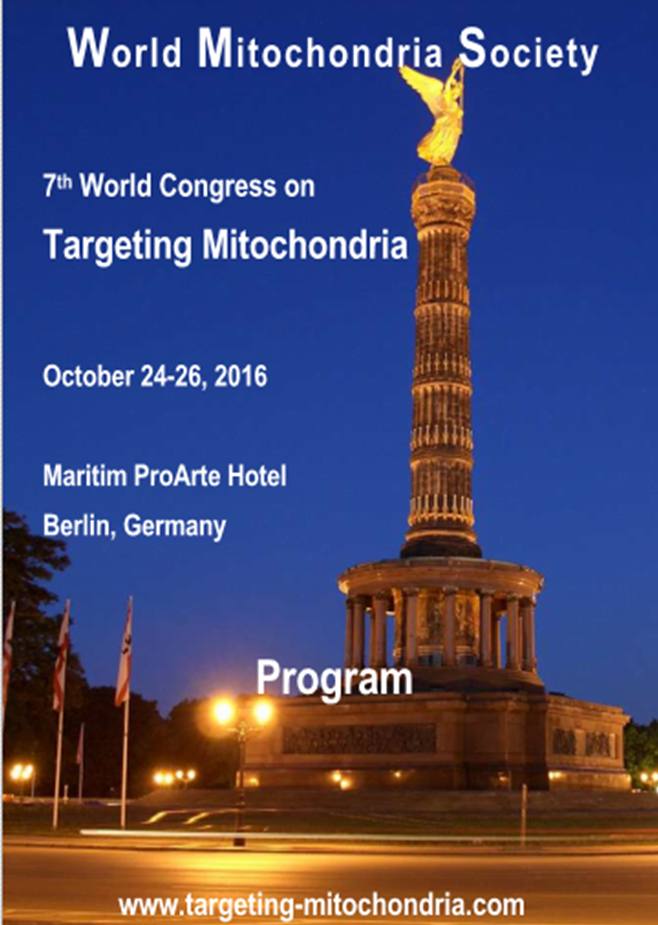 The scientific committee of the World Mitochondria Society published the final agenda of Targeting Mitochondria 2016 including the short oral presentations selected.
The scientific committee of the World Mitochondria Society published the final agenda of Targeting Mitochondria 2016 including the short oral presentations selected.
To access to the final agenda, please follow this link.
The Volume II of Mitochondrial Medicine by Volkmar Weissig and Marvin Edeas is now available
 After the publication of the first volume "Mitochondrial Medicine: Volume 1 - Probing Mitochondrial Function", Volkmar Weissig and Marvin Edeas, as chairmen of the World Mitochondria Society, edited an second book: "Mitochondrial Medicine: Volume 2 - Manipulating Mitochondrial Function"
After the publication of the first volume "Mitochondrial Medicine: Volume 1 - Probing Mitochondrial Function", Volkmar Weissig and Marvin Edeas, as chairmen of the World Mitochondria Society, edited an second book: "Mitochondrial Medicine: Volume 2 - Manipulating Mitochondrial Function"
Concerning Mitochondrial Medicine: Volume 2 - Manipulating Mitochondrial Function:
As the first volume, this expert volume covers an interdisciplinary and rapidly growing area of biomedical research comprising genetic, biochemical, pathological, and clinical studies aimed at the diagnosis and therapy of human diseases which are either caused by or associated with mitochondrial dysfunction. It dedicates itself to showcasing the tremendous efforts and the progress that has been made over the last decades in developing techniques and protocols for probing, imaging, and manipulating mitochondrial functions. Mitochondrial Medicine: Volume II, Manipulating Mitochondrial Function describes techniques developed for manipulating and assessing mitochondrial function under general pathological conditions and specific disease states. Written in the highly successful Methods in Molecular Biology series format, chapters include introductions to their respective topics, lists of the necessary materials and reagents, step-by-step, readily reproducible laboratory protocols, and tips on troubleshooting and avoiding known pitfalls.
Volkmar Weissg and Marvin Edeas highlited the strategic role of mitochondria in health and disease, but they also opened a new window to how to evaluate & to manipulate mitochondrial function.
More than 70 chapters were published by Springer in the two volumes.
For more information about Volume 1, please click here.
For more information about Volume 2, please click here.
Volkmar Weissig and Marvin Edeas updated and renewed an edition for 2017 and discussed the contributors and targets during the 7th World Congress on Targeting Mitochondria that was held in Berlin on October 24-26, 2016.
For more information about the annual Targeting Mitochondria meeting: www.targeting-mitochondria.com
Targeting microbiota-mitochondria inter-talk: Microbiota controls mitochondria metabolism stated by Marvin Edeas
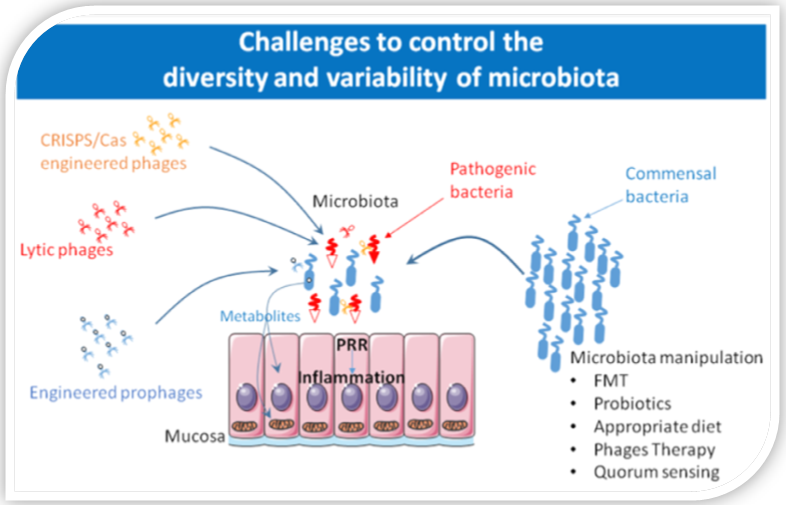 Marvin Edeas from Cochin Institute-INSERM U1016, CNRS UMR8104, Department of Cancer, Development and Reproduction / Inflammation, Oxidative stress and Cellular Proliferation Team at University Paris Descartes published a recent paper titled "Microbiota-mitochondria inter-talk: consequence for microbiota-host interaction".
Marvin Edeas from Cochin Institute-INSERM U1016, CNRS UMR8104, Department of Cancer, Development and Reproduction / Inflammation, Oxidative stress and Cellular Proliferation Team at University Paris Descartes published a recent paper titled "Microbiota-mitochondria inter-talk: consequence for microbiota-host interaction".
Marvin Edeas stated: This is the first time that we demonstrated the intriguing relationship between microbiota and mitochondria. We are at the beginning and in the next years, we will elucidate how they communicate together and how they control our metabolism in health and diseases.
New discoveries in metagenomics and clinical research have highlighted the importance of the gut microbiota for human health through the regulation of host immune response and energetic metabolism. Microbiota interact with host cells in particular by intermingling with the mitochondrial activities. This mitochondria – microbiota cross-talk is intriguing because mitochondria shares a lot of common structural and functional features with prokaryotic world. Several studies reported correlation between microbiota quality and diversity and mitochondrial function. The mitochondrial production of Reactive Oxygen Species plays an important role during the innate immune response and inflammation and is often target by pathogenic bacteria. Data suggest that excessive mitochondrial ROS production may affect ROS signaling induced by microbiota to regulate gut epithelial barrier. Finally, microbiota released metabolites that can directly interfere with mitochondrial respiratory chain and ATP production. Short Chain Fatty Acids have beneficial effects on mitochondrial activity. All these data suggest that microbiota target mitochondria to regulate its interaction with the host. Imbalance of this targeting may results in pathogenic state as observed in numerous studies. The challenge to find new treatment will be to find strategies to modulate the quality and diversity of microbiota rather than acting on microbiota metabolites and microbiota related factors.
References:
Saint-Georges-Chaumet, Y., Edeas, M. Microbiota-mitochondria inter-talk: consequence for microbiota-host interaction. Pathog Dis. 2016 Feb;74(1)
Peltier, E., Attaf, D., Saint-Georges-Chaumet, Y., Edeas, M. Cell. Mol. Biol. 2015; 61 (4): 121-124
Weissig, V. and Edeas, M., Mitochondrial medicine Vol. I & Vol II - Preface. Methods Mol Biol. 2015, 1264 - 1265







